Why do policymakers care so little about pollution?

That pollution is killing us is no news. What is shocking, however, is the harrowing extent of the environmental crisis gripping our country. According to the recently published Bangladesh Country Environment Analysis of World Bank, alarming levels of air pollution, unsafe water, poor sanitation, and exposure to lead caused over 2.72 lakh premature deaths in Bangladesh in 2019. The economic burden of environmental degradation amounted to Tk 92,081 crore, a staggering 17.6 percent of the GDP of that year. These figures are not mere statistics; they represent the profound suffering inflicted upon our people, particularly the most vulnerable among us—the poor, children under five, the elderly, and women.
The World Bank highlighted the devastating health impacts of air pollution, especially from household and outdoor sources. Levels of PM2.5, fine particles known to cause respiratory illnesses and premature deaths, far exceed WHO standards, posing a grave threat to public health. Moreover, lead poisoning, primarily affecting children, is robbing our future generations of their potential, with an estimated loss of 20 million IQ points annually. Our rivers, once lifelines of our nation, are now choked with industrial waste and untreated sewage, jeopardising both human health and ecosystem stability.
What is even more alarming than these statistics is the apathy of our policymakers to reverse the current trend, leaving us wondering if they truly grasp the magnitude of the situation. Time and time again, we have seen government agencies either turn a blind eye towards pollution or actively participate in the process of environmental degradation, prioritising ruthless development and their own personal benefit over the future of the nation. Despite repeated appeals, in this column and elsewhere, our rivers continue to be killed, our air remains thick with pollutants and our land saturated with toxins. Industrial regulations exist in theory alone, and promises of clean energy remain unmet, with the government still insisting on investing in dirty energy that is not only unsustainable but also expensive.
We are glad to hear from Saber Hossain Chowdhury, minister of environment, that combating environmental degradation is a main agenda of the government and that he has undertaken a 100-day programme to address the most crucial environmental issues. Sadly, we have heard such promises before, only to be proven ineffective. We fervently hope that the government's actions match the rhetoric this time around. Ad hoc solutions cannot save the country—we need an all-out effort and the declaration of a public health emergency—to address the loss of valuable years of our lives to preventable pollution. Our policymakers need to change their priorities and align them with those of the people. Each day of inaction translates to more lives lost, more ecosystems irreversibly damaged, and more economic potential squandered.

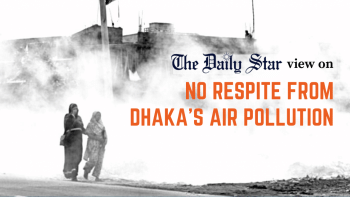
 For all latest news, follow The Daily Star's Google News channel.
For all latest news, follow The Daily Star's Google News channel. 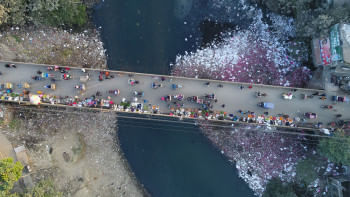
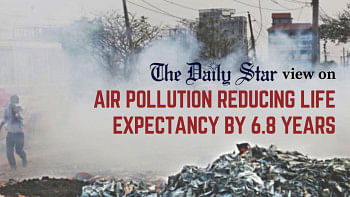


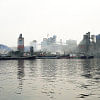


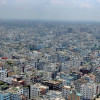
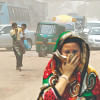


Comments